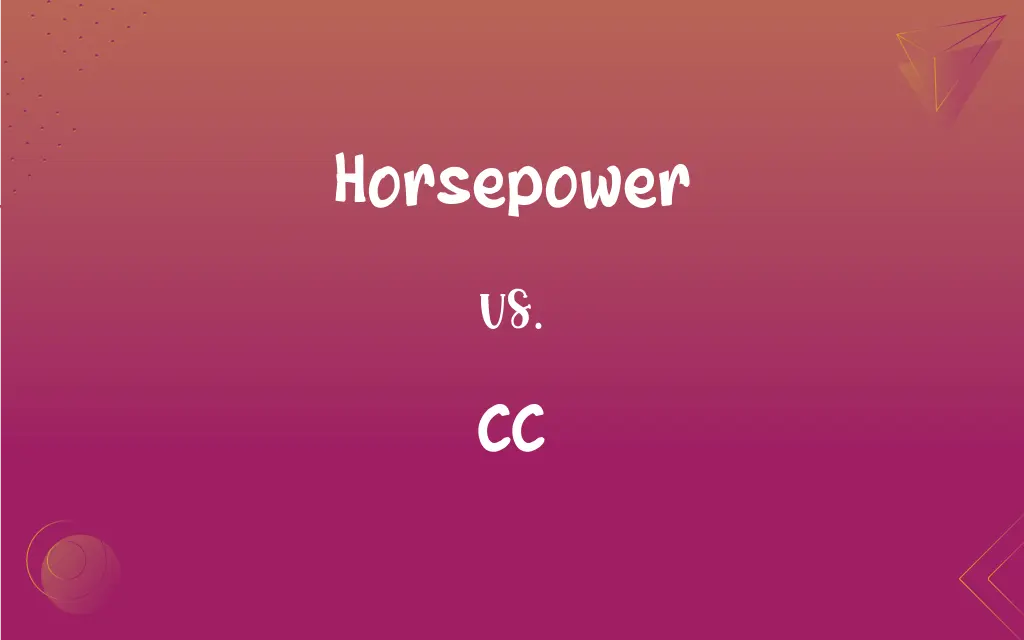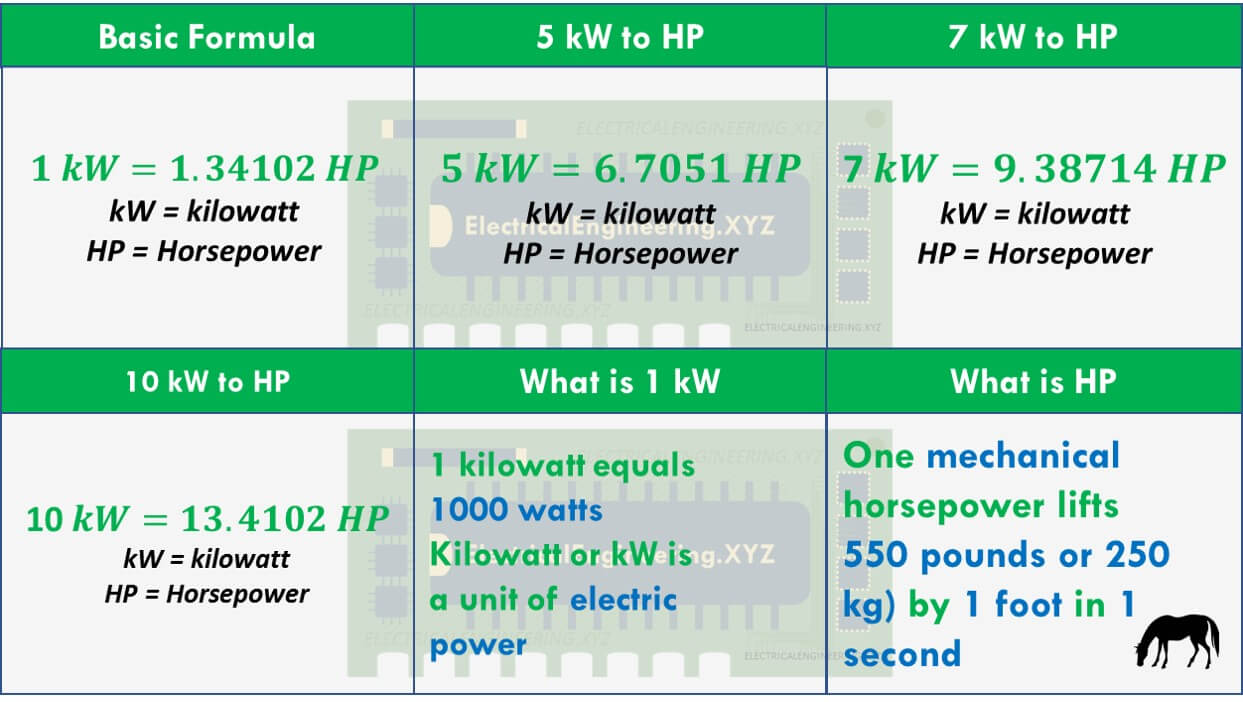Breathtaking Info About How Many HP Is CC

Cc To Hp Conversion Chart Small Engine
Decoding Engine Size
1. What's the Deal with Horsepower and Cubic Centimeters?
Ever wondered what those numbers on your car or motorcycle actually mean? We're talking about horsepower (HP) and cubic centimeters (CC). They're like the secret language of engines, and understanding them can help you make smarter choices about your ride. Think of it as learning a new superpower — the ability to decipher engine lingo!
So, whats the real connection between them? Well, CC (cubic centimeters) refers to the total volume of all the cylinders in your engine. Imagine filling each cylinder with water; the total amount of water (in CCs) gives you the engine's CC rating. Generally speaking, a larger CC usually implies a bigger engine capable of producing more power. But, hold your horses! It's not quite that simple...
Horsepower (HP), on the other hand, is a measure of the engine's power output — how quickly it can do work. It's like measuring how many horses it would take to do the same job as your engine. Think of it as the oomph factor. The higher the HP, the more powerful your vehicle feels. Now, can we directly convert CC to HP? That's where things get a little tricky, and we'll dive deeper into why.
Its not a straightforward conversion. The relationship between CC and HP isn't a one-to-one thing. Many factors play a crucial role, like engine design, the presence of turbochargers or superchargers, and even the fuel injection system. Consider it like baking a cake — you need more than just flour to make it delicious! So, don't expect a simple equation to give you an exact answer.

Cc To Horsepower Conversion Table
Why Can't We Just Convert CC to HP Directly?
2. The Complex Relationship Between Engine Size and Power
Trying to directly convert CC to HP is like trying to predict the weather based solely on the number of leaves on a tree. There are just too many other factors involved! Engine design is a huge one. A high-revving sports car engine with a relatively small CC might produce significantly more HP than a larger, low-revving truck engine. It's all about how efficiently the engine can burn fuel and convert that energy into power.
For instance, a 600cc motorcycle engine might produce around 100 HP, while a 600cc lawnmower engine produces a fraction of that. Why? Because they are designed for entirely different purposes! The motorcycle engine is designed for high performance and rapid acceleration, while the lawnmower engine is designed for steady, reliable power over long periods.
Then there are the forced induction systems — turbochargers and superchargers. These devices force more air into the engine, allowing it to burn more fuel and produce more power. A 2.0L engine with a turbocharger can easily outperform a larger, naturally aspirated (non-turbocharged) engine in terms of horsepower. It's like giving your engine a shot of adrenaline!
Engine tuning also matters. This is basically fine-tuning the engine's settings to optimize performance. Adjusting things like the fuel-air mixture and ignition timing can have a significant impact on horsepower. It's like tweaking the recipe to make the cake even tastier! Different manufacturers and tuners optimize their engines differently, resulting in varying horsepower outputs for similar CC engines.

General HP Ranges for Common CC Sizes
3. A Rough Guide (Don't Quote Us on This!)
Okay, so you can't directly convert CC to HP, but can we at least get a general idea? Sure! Here's a very rough guide, but remember that these are just averages, and the actual horsepower can vary wildly depending on the factors we discussed earlier.
50cc: Think scooters and small mopeds. Expect around 2-5 HP. These little engines are all about fuel efficiency and getting you from point A to point B without breaking the bank (or the sound barrier!).
125cc: Now we're talking about slightly larger scooters and some small motorcycles. Horsepower ranges from 8-15 HP. These offer a bit more pep and can handle city traffic with ease.
250cc: This is a popular size for entry-level motorcycles. Expect around 20-30 HP. Enough power for enjoyable riding and some highway use.
600cc: A common size for sportbikes and middleweight motorcycles. Horsepower can range from 80-120 HP or even more, depending on the engine's design and tuning. These bikes are known for their performance and agility.
1000cc (1 Liter): Now we're in the realm of high-performance motorcycles and some larger cars. Horsepower can easily exceed 150 HP and go much higher. These engines deliver serious power and are often used in sports cars and superbikes.

Other Factors Affecting Performance
4. It's Not Just About the Numbers!
Don't get too hung up on CC and HP alone. Other factors play a significant role in how a vehicle feels to drive. Weight, for instance, is crucial. A lighter vehicle with the same horsepower as a heavier one will feel much faster and more responsive. It's like the difference between a featherweight boxer and a heavyweight boxer — the featherweight might be quicker on its feet.
Gear ratios also matter. These determine how much torque is delivered to the wheels. Shorter gear ratios provide quicker acceleration, while longer gear ratios provide better fuel economy and higher top speeds. Think of it as choosing the right gears on a bicycle for going uphill versus cruising on a flat road.
Aerodynamics play a big role, especially at higher speeds. A streamlined vehicle will cut through the air more easily, reducing drag and improving performance. This is why sports cars often have sleek designs.
And don't forget about the driver! A skilled driver can get more out of a vehicle than someone who's just learning the ropes. Driver skill, experience, and reaction time all contribute to overall performance. Think of it as the secret sauce that ties everything together.

Cc And Hp Conversion
So, What Should You Look For?
5. Finding the Right Balance for Your Needs
Ultimately, the "right" amount of horsepower and CC depends on what you want to do with your vehicle. If you're looking for a fuel-efficient city commuter, a smaller engine with moderate horsepower might be perfect. If you're looking for a thrilling sports car or motorcycle, you'll want a larger engine with plenty of power.
Don't just focus on the numbers on paper. Test drive different vehicles and see how they feel. Pay attention to how quickly they accelerate, how well they handle, and how comfortable they are to drive. The subjective experience is just as important as the objective data.
Consider your budget, too. More powerful engines often come with a higher price tag and may also require more expensive fuel and maintenance. It's all about finding the sweet spot between performance, affordability, and practicality.
Read reviews from reputable sources and talk to other owners. They can provide valuable insights into the real-world performance and reliability of different vehicles. Ultimately, the best choice is the one that best suits your individual needs and preferences.
